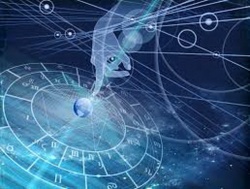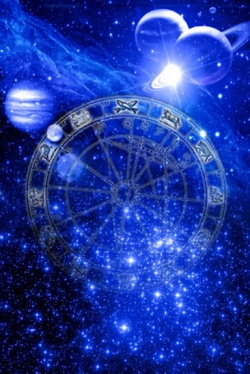Difference between revisions of "The Cosmos Wakes Up"
(Created page with "thumb|250px|thumb|250px| <poem> It was a 14-billion year journey from simple hydrogen to {{Wiki|Mahatma Gandhi}}. DAVID LOY ask...") |
|||
| (2 intermediate revisions by the same user not shown) | |||
| Line 1: | Line 1: | ||
[[File:Im45es.jpg|thumb|250px|]][[File:Ology-2010-01.jpg|thumb|250px|]] | [[File:Im45es.jpg|thumb|250px|]][[File:Ology-2010-01.jpg|thumb|250px|]] | ||
<poem> | <poem> | ||
| − | |||
| − | |||
| − | |||
| − | |||
| − | |||
| − | |||
| − | Is this the answer to the age-old question, “If there is [[no self]], who becomes [[enlightened]]?” Perhaps our [[desire]] to [[awaken]] ([[Buddha]] means “[[awakened one]]”) is [[nothing]] other than the [[urge]] of the [[cosmos]] to become aware of itself. “Waking up” is [[realizing]] that “I” am not inside my [[body]], looking out at a [[world]] that is separate from me. Rather, “I” am what the whole [[universe]] is doing right here and now, one of the [[infinite]] ways that the {{Wiki|totality}} of its various [[causes]] and [[conditions]] comes together. My waking up is the [[universe]] waking up to itself. | + | It was a 14-billion year journey from simple {{Wiki|hydrogen}} to {{Wiki|Mahatma Gandhi}}. DAVID LOY asks: Is [[evolution]] the [[universe]] waking up to itself? |
| + | |||
| + | [[Religions]] tend to deny or ignore [[evolution]], but what happens if instead they embrace it and make it central to their message? For [[Buddhists]], the relevant question is what the teachings on [[impermanence]] and [[insubstantiality]] imply about the [[Big Bang]] and evolutionary [[development]]. | ||
| + | |||
| + | One way to approach this issue is to ask whether [[evolution]] is really as random and meaningless as many [[scientists]] believe. According to [[Brian Swimme]], in his [[book]] The [[Universe]] Story, the most mysterious and, yes, [[spiritual]] [[phenomenon]] in the [[universe]] is that if you leave {{Wiki|hydrogen}} alone for fourteen billion years, it eventually transforms into rosebushes and giraffes—and us. Now, fourteen billion years might seem like a long [[time]] but I think it is actually a very short period of [[time]] to evolve from [[Big Bang]] [[plasma]] to a [[Shakyamuni Buddha]] or a {{Wiki|Gandhi}}. Unless, of course, {{Wiki|matter}} is something quite different from the reductionistic way it is usually understood. | ||
| + | |||
| + | What we usually think of as evolution—the {{Wiki|genetic}} variation that leads to more complex life-forms—is only one of three [[interdependent]] and progressive {{Wiki|processes}} through which the [[universe]] developed. It’s a story as amazing as any [[religious]] [[myth]]. | ||
| + | |||
| + | The first step was the creation of the higher [[elements]], formed when {{Wiki|hydrogen}} fused in the cores of {{Wiki|stars}} and supernovas, which then exploded and scattered the [[elements]] to coalesce into new {{Wiki|solar}} systems. In the second step, [[elements]] such as {{Wiki|carbon}}, {{Wiki|oxygen}}, and {{Wiki|sodium}} provided the material basis for the eventual [[appearance]] of self-replicating {{Wiki|species}} about four billion years ago, [[including]] the [[appearance]] of [[human beings]] about 200,000 years ago. Last but not least was the process of {{Wiki|cultural}} [[development]] that has been necessary to produce highly evolved [[human beings]] such as the [[Buddha]], and, in our day, {{Wiki|Gandhi}} or {{Wiki|Einstein}}. | ||
| + | |||
| + | To me, it seems implausible that all this is accidental. That does not necessarily mean that there must be an outside director—a God—who is organizing the whole thing. Instead, can we understand this groping self-organization as the [[universe]] struggling to become more [[self-aware]]? In The [[Universe]] Story, [[Brian Swimme]] and [[Thomas Berry]] offer such a [[nondualistic]] [[interpretation]]: “The [[eye]] that searches the {{Wiki|Milky Way}} {{Wiki|galaxy}} is itself an [[eye]] shaped by the {{Wiki|Milky Way}}. The [[mind]] that searches for [[contact]] with the {{Wiki|Milky Way}} is the very [[mind]] of the {{Wiki|Milky Way}} {{Wiki|galaxy}} in search of its [[own]] depths.” When Walt Whitman admired a beautiful sunset, he was “a [[space]] the {{Wiki|Milky Way}} fashioned to [[feel]] its [[own]] grandeur.” | ||
| + | |||
| + | Is this the answer to the age-old question, “If there is [[no self]], who becomes [[enlightened]]?” Perhaps our [[desire]] to [[awaken]] ([[Buddha]] means “[[awakened one]]”) is [[nothing]] other than the [[urge]] of the [[cosmos]] to become {{Wiki|aware}} of itself. “Waking up” is [[realizing]] that “I” am not inside my [[body]], looking out at a [[world]] that is separate from me. Rather, “I” am what the whole [[universe]] is doing right here and now, one of the [[infinite]] ways that the {{Wiki|totality}} of its various [[causes]] and [[conditions]] comes together. My waking up is the [[universe]] waking up to itself. | ||
</poem> | </poem> | ||
| + | |||
| + | |||
| + | |||
| + | |||
{{R}} | {{R}} | ||
[http://www.shambhalasun.com/index.php?option=com_content&task=view&id=3601&Itemid=0\ www.shambhalasun.com] | [http://www.shambhalasun.com/index.php?option=com_content&task=view&id=3601&Itemid=0\ www.shambhalasun.com] | ||
| + | [[Category:Buddhist Terms]] | ||
[[Category:Buddhism And Science]] | [[Category:Buddhism And Science]] | ||
Latest revision as of 18:09, 30 November 2023
It was a 14-billion year journey from simple hydrogen to Mahatma Gandhi. DAVID LOY asks: Is evolution the universe waking up to itself?
Religions tend to deny or ignore evolution, but what happens if instead they embrace it and make it central to their message? For Buddhists, the relevant question is what the teachings on impermanence and insubstantiality imply about the Big Bang and evolutionary development.
One way to approach this issue is to ask whether evolution is really as random and meaningless as many scientists believe. According to Brian Swimme, in his book The Universe Story, the most mysterious and, yes, spiritual phenomenon in the universe is that if you leave hydrogen alone for fourteen billion years, it eventually transforms into rosebushes and giraffes—and us. Now, fourteen billion years might seem like a long time but I think it is actually a very short period of time to evolve from Big Bang plasma to a Shakyamuni Buddha or a Gandhi. Unless, of course, matter is something quite different from the reductionistic way it is usually understood.
What we usually think of as evolution—the genetic variation that leads to more complex life-forms—is only one of three interdependent and progressive processes through which the universe developed. It’s a story as amazing as any religious myth.
The first step was the creation of the higher elements, formed when hydrogen fused in the cores of stars and supernovas, which then exploded and scattered the elements to coalesce into new solar systems. In the second step, elements such as carbon, oxygen, and sodium provided the material basis for the eventual appearance of self-replicating species about four billion years ago, including the appearance of human beings about 200,000 years ago. Last but not least was the process of cultural development that has been necessary to produce highly evolved human beings such as the Buddha, and, in our day, Gandhi or Einstein.
To me, it seems implausible that all this is accidental. That does not necessarily mean that there must be an outside director—a God—who is organizing the whole thing. Instead, can we understand this groping self-organization as the universe struggling to become more self-aware? In The Universe Story, Brian Swimme and Thomas Berry offer such a nondualistic interpretation: “The eye that searches the Milky Way galaxy is itself an eye shaped by the Milky Way. The mind that searches for contact with the Milky Way is the very mind of the Milky Way galaxy in search of its own depths.” When Walt Whitman admired a beautiful sunset, he was “a space the Milky Way fashioned to feel its own grandeur.”
Is this the answer to the age-old question, “If there is no self, who becomes enlightened?” Perhaps our desire to awaken (Buddha means “awakened one”) is nothing other than the urge of the cosmos to become aware of itself. “Waking up” is realizing that “I” am not inside my body, looking out at a world that is separate from me. Rather, “I” am what the whole universe is doing right here and now, one of the infinite ways that the totality of its various causes and conditions comes together. My waking up is the universe waking up to itself.

